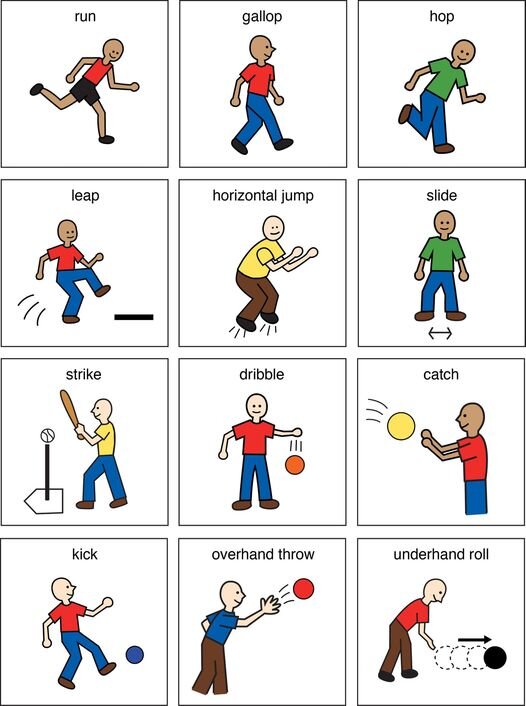Motor Skills
Day 26 of a 30-day series originally published for Facebook April 2021
The central nervous system is responsible for motor skills. Gross motor skills are the big movements such as walking, dancing, and playing sports. Fine motor skills are smaller movements, like handwriting, drawing, and cutting paper.
Motor skills are an area that gets a lot of attention when it comes to Autistics because Autism is a neurological difference with NO defining physical traits. Because differences in brain function are not easy to detect, researchers can observe the development of motor skills to get a "peek" into neurological functioning. Research studies on motor skills are easily reproducible and the resulting data is measurable. Over 87% of children diagnosed with ASD have delayed gross and fine motor skills. Studies show they are often 6 months or more behind when compared to peers.
To give you an example, M did not support his head, roll over, sit up, crawl, or walk at the typical times. One of the reasons M has the nickname "baby," besides the fact that we thought he was going to be the last kid, hence always the baby, is because his gross motor skills matched a child who was quite a bit younger. As he's gotten older, activities such as dressing himself, bathing, pouring liquid in a cup, going up and downstairs, and playing sports are just a few of the activities that have required extra supports to master. To be clear though, being a late walker, or having underdeveloped motor skills is not a RESULT of autism, it is an INDICATION that there is a neurological difference that requires support. Interestingly, M is a fantastic colorer and has great handwriting, so his fine motor skills seem right on track. We wonder if it may have to do with all the hand-eye coordination practice he gets playing Nintendo Switch. Ha!
Physical and Occupational therapies are fantastic ways to support gross and fine motor delays. Unfortunately, only 32% of autistic kiddos are ever given the opportunity to participate in these types of therapies. New research is also showing that activities such as yoga, adaptive sports, and martial arts can also be helpful. Earlier this Fall M was part of a research study at UNT to measure the benefits of yoga on gross motor skills and vestibular functioning. Over the 3 months of the study, he improved his core strength and balance significantly!

